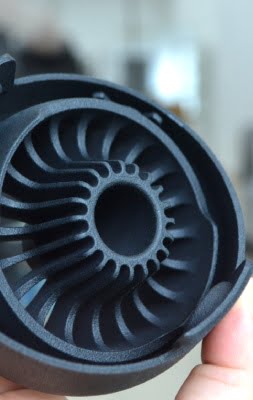Precision 3 & 5 Axis Milling & Cutting Services
Our CNC milling services form the foundation of our precision and high-quality plastic components. By utilising advanced CNC milling technology, we produce intricate and detailed parts from a variety of materials including acrylic, acetal, nylon, HDPE, PEEK, and polypropylene. Our state-of-the-art milling machines ensure tight tolerances and superior surface finishes, complemented by a full suite of services such as CNC turning, routing, laser cutting, and UV digital printing, providing comprehensive solutions for all your plastic component requirements.
High speed 3 & 5 axis milling machines
Milling tools down to 0.1mm diameter for fine features
Drilling from 0.1mm diameter
Spindle speeds of up to 60,000 rpm for fast material removal.

CNC milling is a subtractive manufacturing process – that is, it removes material from a blank or workpiece to create the required shape. By contrast, our 3D printing services are examples of additive manufacturing, where material is gradually added to make the finished product.
CNC stands for Computer Numerical Control, an industry term that means that the actual milling operation is controlled by computer. Skilled technicians and operators take (or even create) Computer Aided Design (CAD) models of the required product and convert this into coded instructions for the machine. The CNC system then controls the tool and working platform to carry out the required operations.
In milling, the blank or workpiece is held in place and a rotating bit makes passes over and/or along it, removing material on each pass. This is in contrast to turning, where the workpiece is spun at high speed and a stationary cutting bit removes material. Turning produces precise symmetrical forms, whereas milling can produce parts of almost any form or shape. The limits come from capabilities of the operator and the functions of the CNC milling machine – especially how many axes the machine can work in.
A 3-axis CNC machine works in the basic three dimensions, able to move tools up/down, left/right and in/out. A 5-axis machine can also rotate and tilt the working platform, which in combination with the other three axes allows almost any part of the workpiece to be presented to the tool bit at any angle.
CNC milling offers quicker, more accurate and more consistent production when compared to non-computerised methods. And producing the CAD files and CNC code to make a single part or a small batch of parts has a vastly lower cost than making tooling, moulds and dies. These only become cost-effective for true mass-production.
















At IPFL, our CNC milling service is ready to meet the diverse needs of your precision plastic component projects. Whether it’s handling high-volume production or specialised prototype runs, we deliver the highest quality components. Our commitment to precision and efficiency ensures every milled part, whether standalone or part of a larger assembly, is produced with exceptional detail and quality.
Applications of CNC Milling:
Types of CNC Milling:
CNC milling at IPFL involves diverse machining types to suit your specific project requirements:
CNC Milling vs 3D Printing: While 3D printing excels in the early stages of development, CNC milling is often preferred for mid to late-stage development due to its ability to produce functionally stronger parts with superior quality and finish.
Advantages of CNC Milling:
Our advanced CNC milling services ensure that from the initial concept to the final product, your components lead in innovation and quality.

Our top of the range plastic CNC milling service produces highly accurate, quality plastic components for industrial, scientific, design & development, props, motorsport and defence industries.








